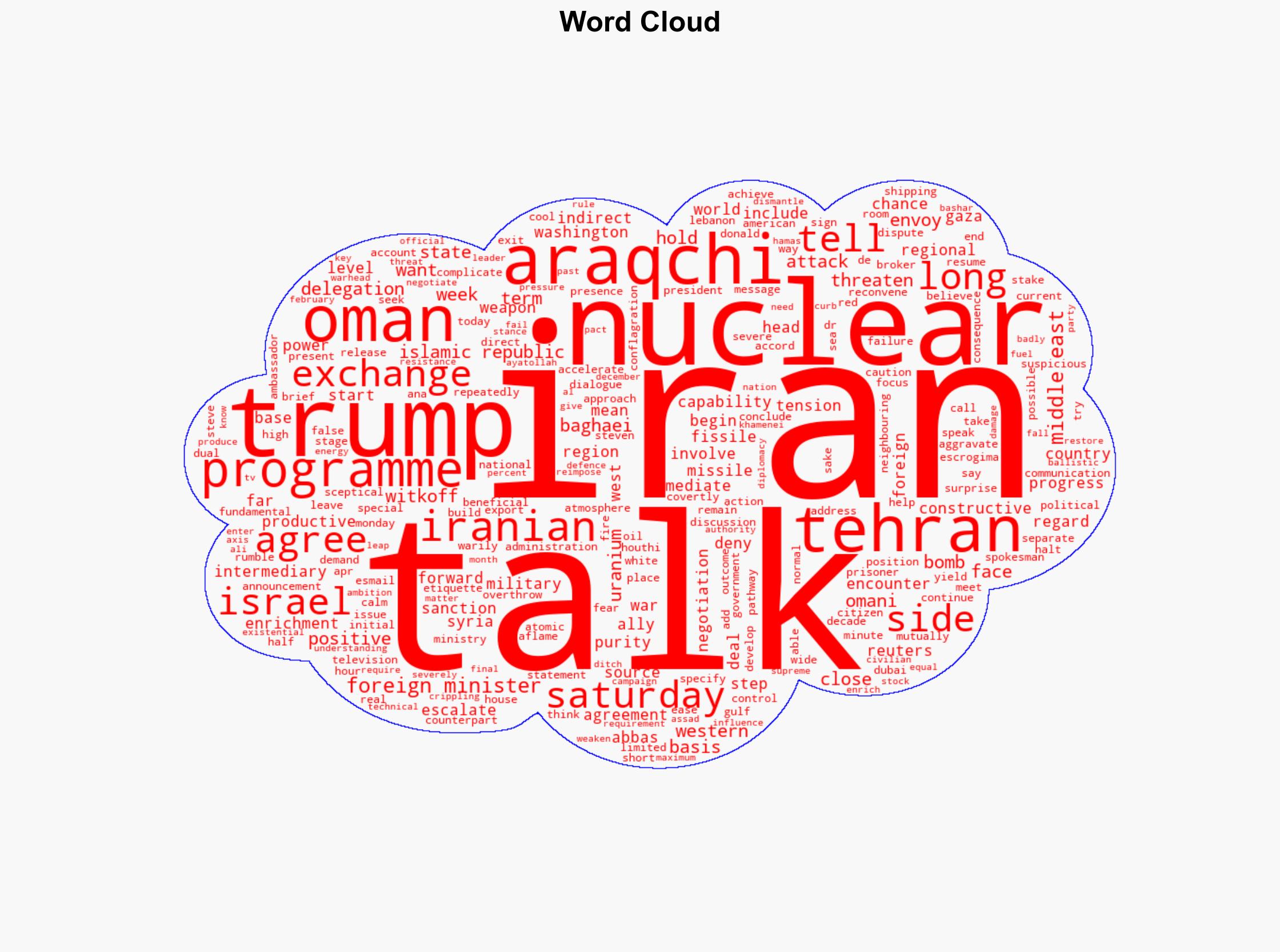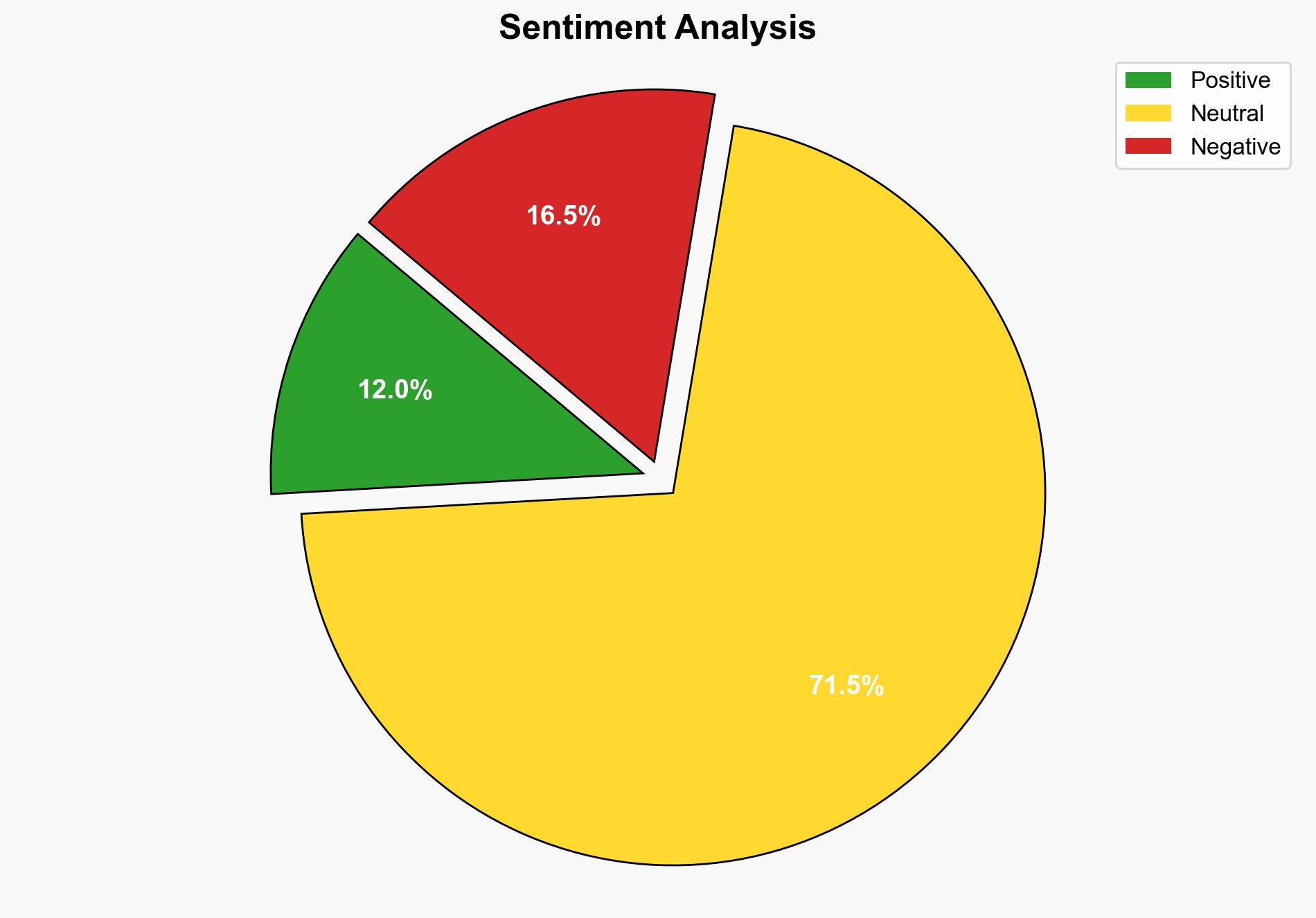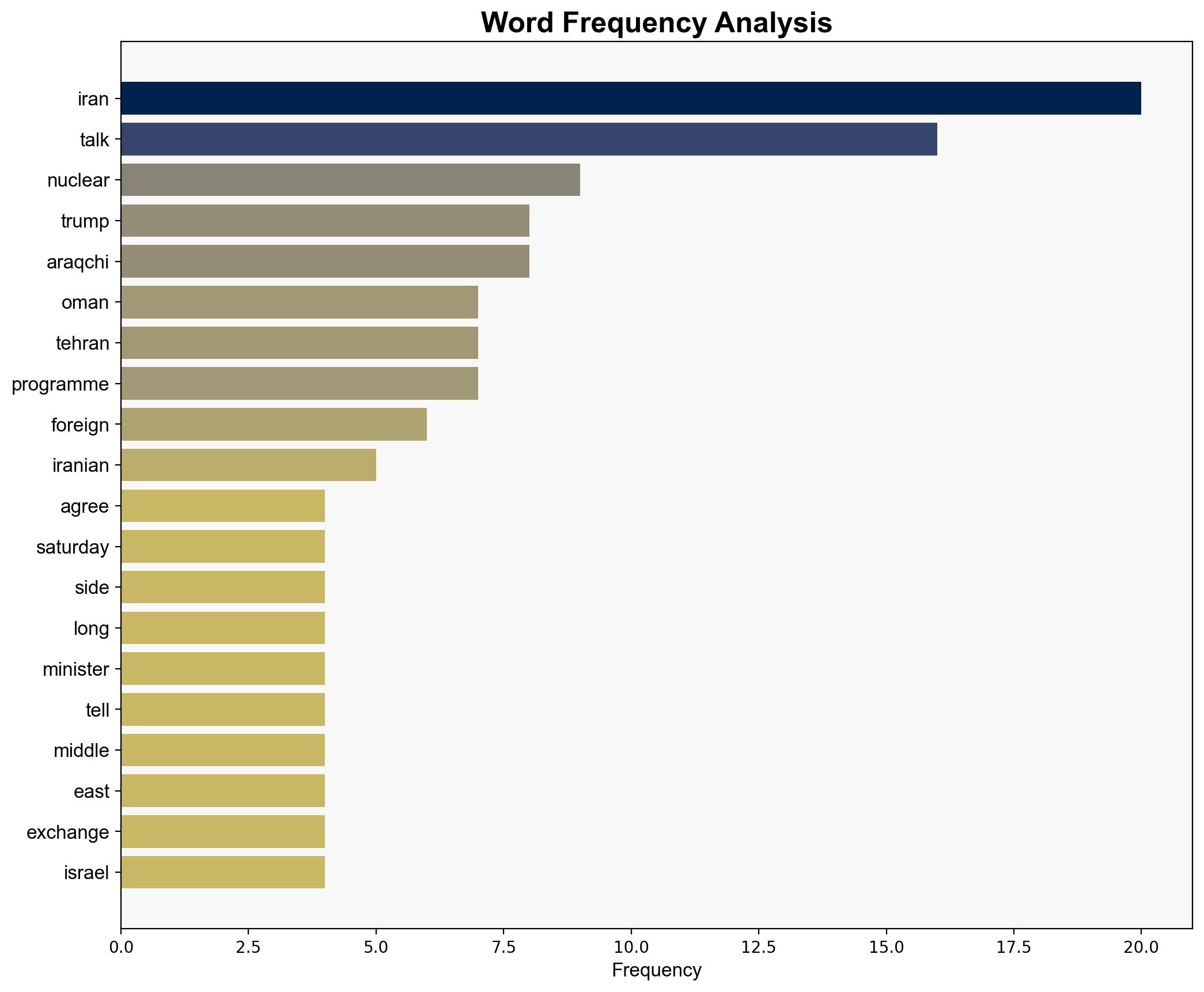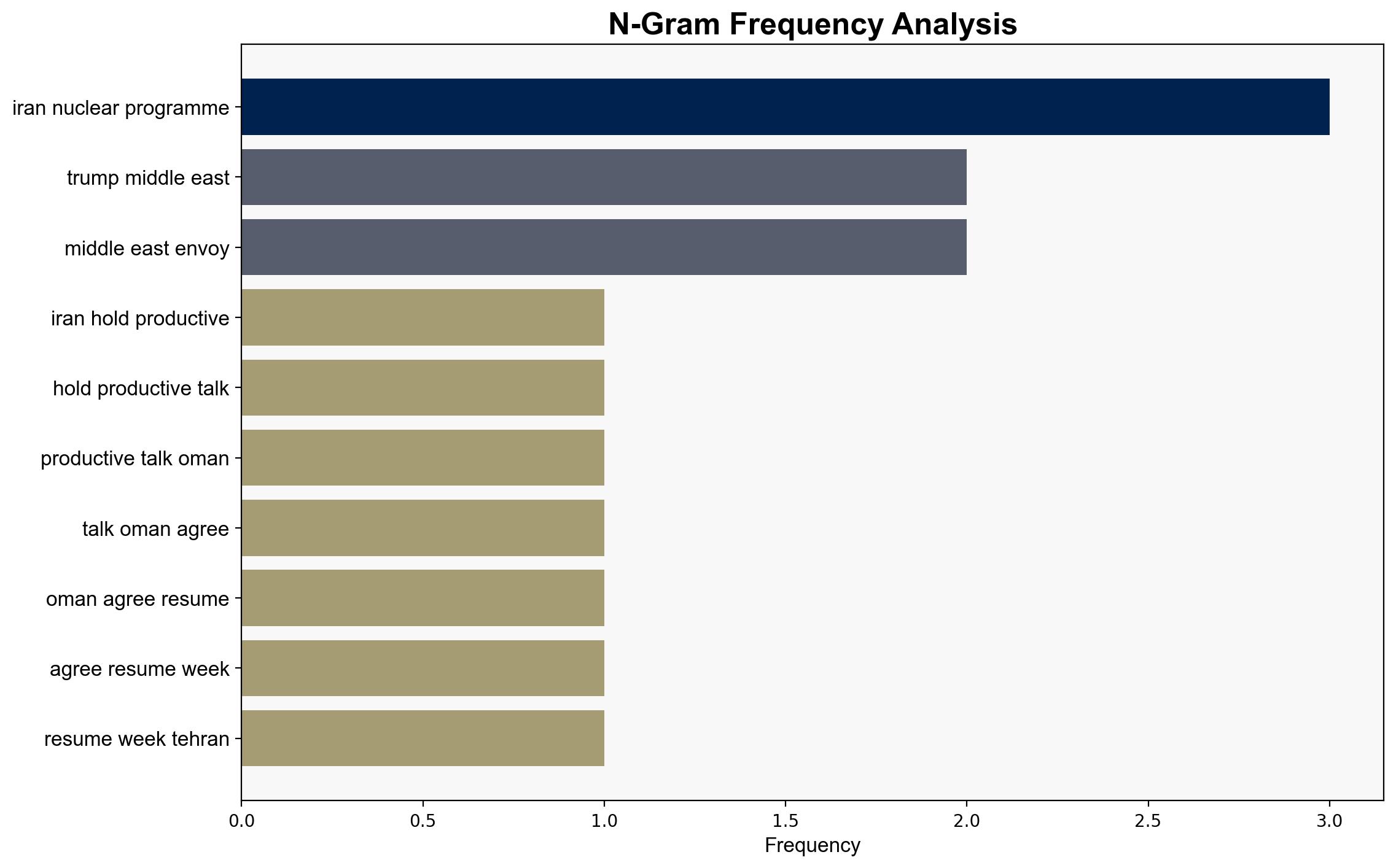Iran US hold ‘productive’ talks in Oman agree to resume next week Tehran says – CNA
Published on: 2025-04-12
Intelligence Report: Iran US hold ‘productive’ talks in Oman agree to resume next week Tehran says – CNA
1. BLUF (Bottom Line Up Front)
Iran and the United States have engaged in indirect talks in Oman, described as “productive” and “constructive,” with plans to reconvene next week. The discussions aim to address Iran’s nuclear program and regional tensions, with both parties expressing a desire for a short-term agreement. The talks were mediated by Oman, with each delegation in separate rooms, highlighting the cautious approach by both sides.
2. Detailed Analysis
The following structured analytic techniques have been applied for this analysis:
General Analysis
The talks between Iran and the US mark a significant diplomatic engagement, facilitated by Oman, a country with a history of mediating between Western powers and Iran. The indirect nature of the talks suggests a tentative approach by both parties, reflecting underlying mistrust and the complexity of the issues at hand. The focus on de-escalating regional tensions and potential prisoner exchanges indicates a broader agenda beyond the nuclear program. The involvement of key figures such as Abbas Araqchi and Steven Witkoff underscores the high-level nature of the dialogue.
3. Implications and Strategic Risks
The continuation of talks could lead to a reduction in regional tensions and a framework for future negotiations on Iran’s nuclear program. However, the risk of failure remains high, given historical mistrust and the potential for miscommunication. A breakdown in talks could escalate tensions, impacting regional stability and global economic interests, particularly in the energy sector. The indirect nature of the talks also suggests potential challenges in achieving a comprehensive agreement.
4. Recommendations and Outlook
Recommendations:
- Encourage continued diplomatic engagement through intermediaries to build trust and facilitate communication.
- Support confidence-building measures, such as prisoner exchanges, to demonstrate goodwill and commitment to dialogue.
- Enhance intelligence-sharing and coordination with regional allies to monitor developments and anticipate potential escalations.
Outlook:
Best-case scenario: Successful negotiations lead to a short-term agreement, easing sanctions and reducing regional tensions.
Worst-case scenario: Talks collapse, leading to increased hostilities and potential military confrontations.
Most likely scenario: Incremental progress with continued indirect talks, maintaining a fragile status quo while working towards a more comprehensive agreement.
5. Key Individuals and Entities
The report mentions significant individuals and organizations involved in the talks:
- Abbas Araqchi
- Steven Witkoff
- Esmail Baghaei
These individuals are central to the ongoing negotiations and play critical roles in shaping the outcomes of the talks.





